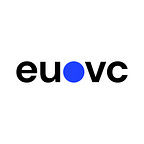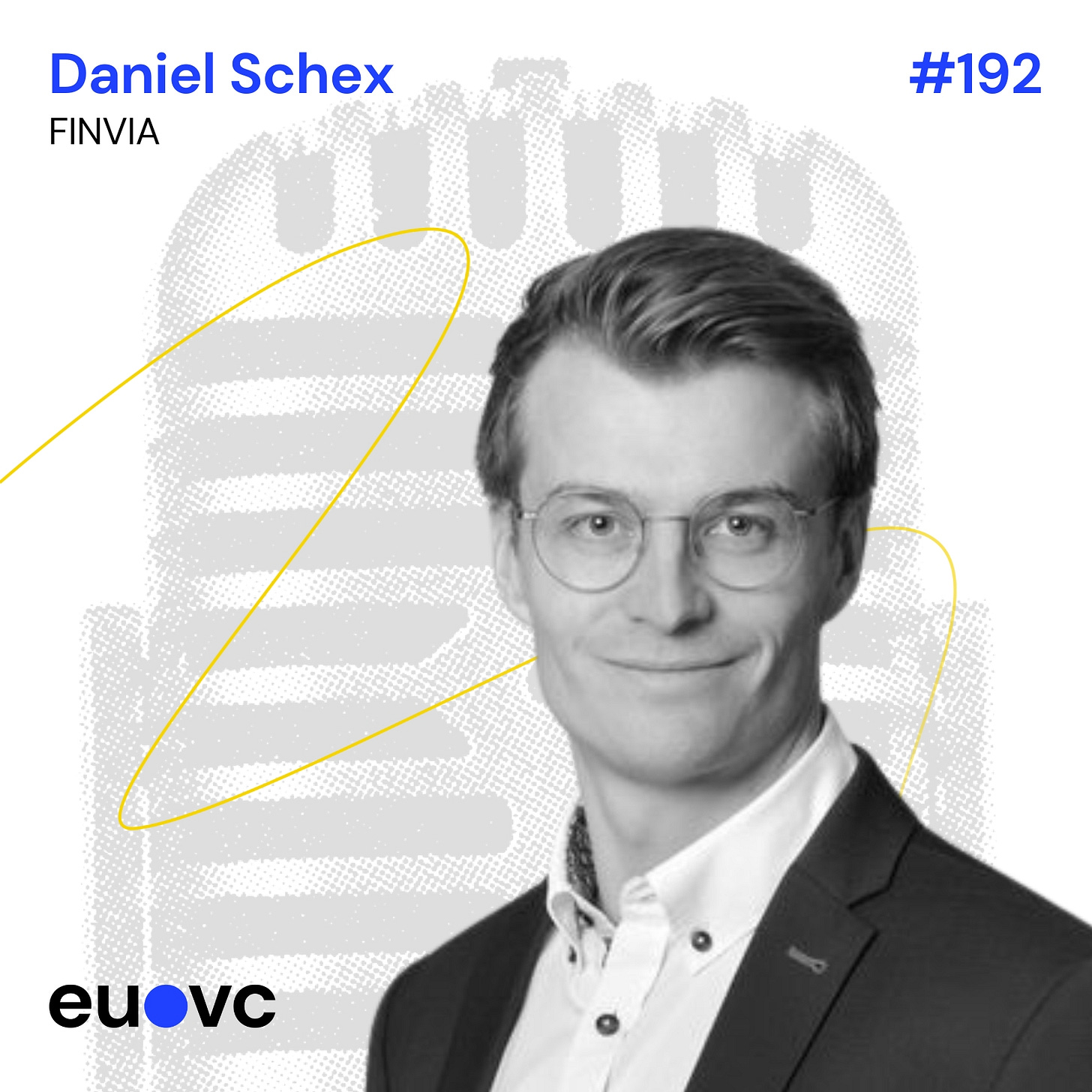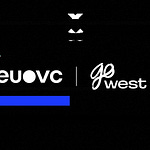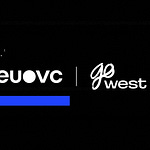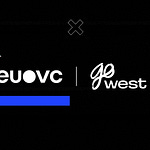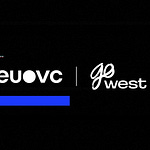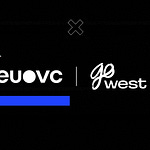Welcome to the first episode of a mini-series spotlighting European LPs’ perspectives on venture investing in Europe. In this first episode, we’re joined by Daniel Schex, PE & VC Investment Professional at FINVIA, a leading Multi Family Office in Germany serving the special needs of high-net-worth individuals.
FINVIA has 4,5bn EUR in Assets Under Management on their platform, investing in funds and building a global portfolio across different strategies and verticals.
A special thanks goes out to dear friend Marc Penkala from Altitude for joining us for these episodes not only as co-host for the series but also as host at his enchanting estate in the midst of Berlin.
Scroll ⏬ for the core insights and video-recorded interview 👀
Expand North Star in Dubai - the ultimate startup and investor connector event.
15 - 18 October, Dubai
Discover the tech and investment opportunities fuelling growth across UAE, MENA, and APMEA regions at Expand North Star and GITEX GLOBAL, now the world’s largest tech and startup event.
Join 1,400 exhibiting startups, and 1,000 investors at Dubai Harbour to scout for your next big deal, connect with other investors, and meet public and private stakeholders to elevate your fund goals.
Daniel’s Journey into Venture
Right from the start, Daniel unabashedly embraced his German heritage, and his foray into the world of venture was nothing short of a meticulously crafted odyssey.
I’ve always been interested in three things, investing, helping others, and startups.
Even during my student days, I embarked on a multitude of internships, immersing myself in wealth management, family offices, and various investment vehicles like private equity funds and hedge funds.
In the pursuit of knowledge through firsthand experience, Daniel stumbled upon his true passion — Multi-Family Offices, or MFOs for short. Here, he found the perfect intersection of his two fervent fascinations: immersing himself in the realm of investment expertise while also providing invaluable guidance to discerning clients.
I’m part of a team that does fund investments in the alternative investment space, such as Private Equity and VC.
Daniel taking a stance.
We challenged Daniel to take a stance on the following often heard statement:
Most families engage in pre-seed and seed fund investments to gain access to co-investment opportunities.
So what does Daniel say?
Some do. Some don’t. While it holds true for some families, it certainly doesn't apply universally.
In my experience, single family offices often pursue such investments due to their desire for a meaningful connection, be it with their family business or the broader investment landscape. This resonance within their chosen space instills a sense of confidence and fulfillment. Or they want to do a lot of co-investments to, mayb, blend down their average management fee.
For multifamily offices , some do and, some don't because it depends, again, individually on the client.
Diving deep into Multi Family Offices in Europe
When it comes to Multi-Family Offices (MFOs) in Europe, one must acknowledge the diverse array of approaches and services they offer, contingent upon the specific office or single-family entity they represent.
MultiFamily Offices in Europe vary in their approaches and services, depending on the individual office or single-family office they represent. Speaking from the perspective of a typical multifamily office, their primary focus is on strategic asset allocation for each client.
Picture a typical multifamily office, burdened with the weighty responsibility of safeguarding the wealth of numerous individuals. Their paramount focus centers around strategic asset allocation for each esteemed client they serve. In this intricate dance of fiscal stewardship, these offices meticulously craft asset allocations that encompass an entire spectrum of asset classes, leaving no stone unturned, including the alluring realms of private equity and venture capital.
With the responsibility of managing the wealth of several individuals, these offices develop asset allocations that cover all asset classes, including private equity and venture capital. The investment team within the office employs a top-down approach to structure the portfolio, determining the allocation between buyout, growth, and venture capital.
Decision-making in MFOs.
In the ceaseless pursuit of excellence, multifamily offices relentlessly seek access to extraordinary managers, deploying rigorous due diligence and engaging in profound discussions. Yet one must note that the level of involvement and decision-making authority with esteemed clients can truly diverge, hinging upon their individual sophistication and, naturally, their distinctive preferences.
Some clients, particularly large single-family offices, prefer close collaboration, engaging in due diligence, sourcing managers, and discussing investment decisions in an iterative process.
But then there’s another breed of clients, those who seek solace in the art of outsourcing. They place unwavering trust in the multifamily office's expertise and erudition, relinquishing the burden of decision-making entirely.
Allocation to venture capital
In the world of multifamily offices, there’s no fixed average allocation to speak of. It's a swirling dance, a harmonious symphony of numbers and percentages that adapts to the grandeur of each client's portfolio.
The allocation to venture capital also depends on individual client profiles, risk-return preferences, investment horizon, and liquidity constraints.
While there is no fixed average allocation for multifamily offices, a few percent of a large client's portfolio may be dedicated to venture capital within a broader private equity allocation.
From the multifamily office's perspective, maintaining a consistent strategic asset allocation is crucial, with minor adjustments over time-based on clients' cash flow requirements or market conditions.
Relationship management in MFOs.
In the multifamily office landscape, client relationships vary greatly based on specific needs and interests.
Relationships with clients in multifamily offices can differ significantly, depending on their specific needs and interests. Some clients seek in-depth engagement and frequent discussions with investment professionals, while others prefer a more hands-off approach.
For sophisticated investors, direct conversations with managers or extensive conversations with the multifamily office's investment team are common.
These clients may be more time-consuming but can write larger checks.
In effect, the multifamily office provides a synergy effect by sourcing managers for multiple families or individuals whenever possible, becoming a more significant limited partner in each investment. When succesful, to the benefit of all.
Daniel’s shout-out 💌
Underpinning the importance of transforming from a one-man show into a sustainable, multi-generational force, Daniel gives his shout-out to HV Capital:
I want to take a moment to give a special shout-out to HV Capital, one of the first German VCs to make their succession plans a reality.
It's truly remarkable how they seamlessly pass the baton from one generation to the next, ensuring continuity and longevity in their endeavors. This is a trend that I believe many GPs will have to embrace in the future.
LPs seek the assurance that the partnership they forge will endure, even when the visionary founder is no longer at the helm.
Daniel’s Three Biggest Learnings
People — A great brand is all great, but it doesn't help if the people who build it up, who made all the deals are not there anymore. In the end, people are the ones who do the deals and make the decisions.
Don’t time the market — It’s impossible. Some LPs still think they can do it, but no one can.
Keep an eye on your asset allocation — Watch closely how your assets perform and thoroughly plan cashflow. Especially in these times. That's important.
🔫 The Quickfire Round 🔫
What advice would you give your own 10 your younger self?
Firstly, embrace your strengths and weaknesses wholeheartedly. Focus on honing your natural talents and devote less time to areas where you struggle. Instead, entrust those tasks to individuals who excel in those domains. It's a simple yet powerful principle.
Secondly, resist the temptation to compare yourself to others. Forge your own path and approach things in a way that feels authentic to you. Remember, success is subjective, and true fulfillment lies in pursuing your own unique journey.
Lastly, when it comes to investing, whether in public or private markets, always adopt a long-term perspective. Reflecting on my past, I realize that I placed too much emphasis on short-term returns when building my stock portfolio. Recently, a student of mine prompted this realization during a conversation. They inquired about my predictions for the next two years, to which I honestly replied, "I don't know." It served as a reminder that no one possesses a crystal ball.
What are your top tips for emerging VCs who are now fundraising across Europe?
Several key insights come to mind. In the current market environment, it’s crucial to present compelling arguments that demonstrate why your strategy holds promise for the years ahead.
Convincing LPs of your long-term vision is essential. It’s a +20 years game. So, make sure that LPs feel that this thing will likely be your final career step.
It’s like a marriage. When you marry an LP you’ll work together for at least 10-12 years. If you raise a second and a third fund, then it’s already 20 years or more.
Daniel also advises us to ensure that the team dynamic is a harmonious fit, especially when you have co-GPs.
This partnership is also a long-term commitment, and LPs want to witness a strong, cohesive unit working seamlessly together. A fragmented team or frequent changes can raise concerns and harm future re-ups or potential new LP relationships.
And how about when actually fundraising from LPs?
While seeking investment, avoid being overly demanding when it comes to ticket sizes. As an emerging manager, relationship building, trust, and familiarity are key. Focus on fostering connections and building a network of supporters.
Equally important is it to secure investors who bring value beyond capital. Seek out partners who can provide strategic guidance, industry expertise, and valuable connections. This adds depth to your fundraising efforts and enhances the overall value you can offer.
Lastly, never underestimate the power of consistent communication. Even if a family office or multifamily office does not commit to your first fund, keep them engaged and informed. Maintain regular contact, providing them with updates and holding two update calls per year.
Fundraising is an ongoing process, and nurturing relationships is vital.
These tips serve as guideposts for emerging VCs navigating the fundraising landscape in Europe. Wishing you the best on your fundraising journey!
What is the most counterintuitive thing you've learned since you started in VC?
One of the most counterintuitive lessons I've learned since entering this world is that while people often approach investments with rationality and logical thinking, but there is a surprising shift in sentiment when the market experiences a downturn.
During times of strong returns and a favorable environment, everyone is eager to commit capital. However, when the market sentiment turns and returns start to decline, a curious phenomenon emerges.
Some investors, despite their professionalism, succumb to fear or find themselves overcommitted. Suddenly, they prefer to stay on the sidelines and wait for better conditions.
Daniel’s Controversial Statement
Finally, to provoke your thinking on a sunny (hopefully!) day like this, we asked Daniel to give us his controversial thinking:
Every VC (the private individual) should have an independent financial advisor. The reason is I think that you can be the expert in picking startups and this ecosystem, but you can't be the expert for everything because there is a lot of other asset classes and financial planning and so on.
And I think it's always good to have someone independent who have some that for you over what playing for your overall asset allocation and future plans.


